Cassandra Xia
Snorkel DryBell: A Case Study in Deploying Weak Supervision at Industrial Scale
Dec 02, 2018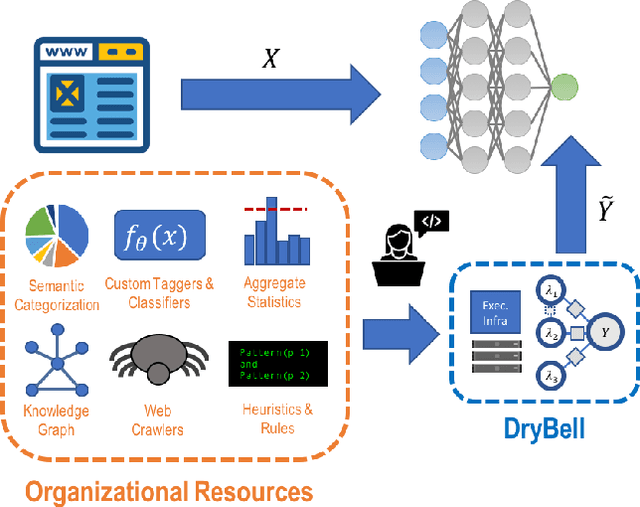



Abstract:Labeling training data is one of the most costly bottlenecks in developing or modifying machine learning-based applications. We survey how resources from across an organization can be used as weak supervision sources for three classification tasks at Google, in order to bring development time and cost down by an order of magnitude. We build on the Snorkel framework, extending it as a new system, Snorkel DryBell, which integrates with Google's distributed production systems and enables engineers to develop and execute weak supervision strategies over millions of examples in less than thirty minutes. We find that Snorkel DryBell creates classifiers of comparable quality to ones trained using up to tens of thousands of hand-labeled examples, in part by leveraging organizational resources not servable in production which contribute an average 52% performance improvement to the weakly supervised classifiers.
TensorFlow Estimators: Managing Simplicity vs. Flexibility in High-Level Machine Learning Frameworks
Aug 08, 2017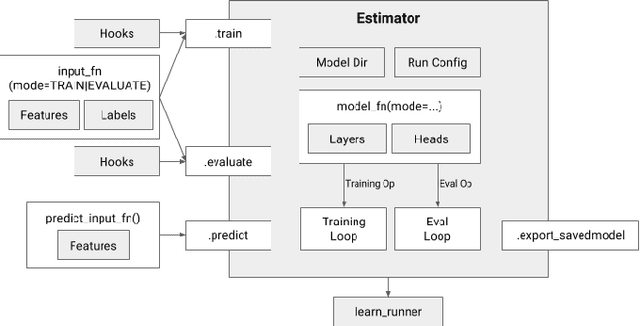
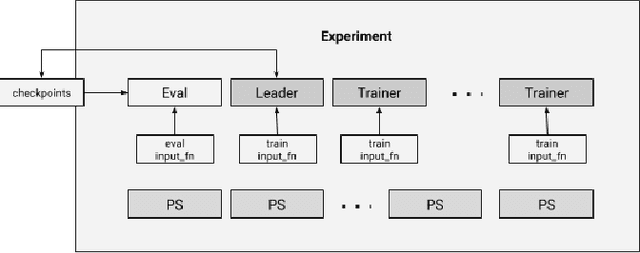
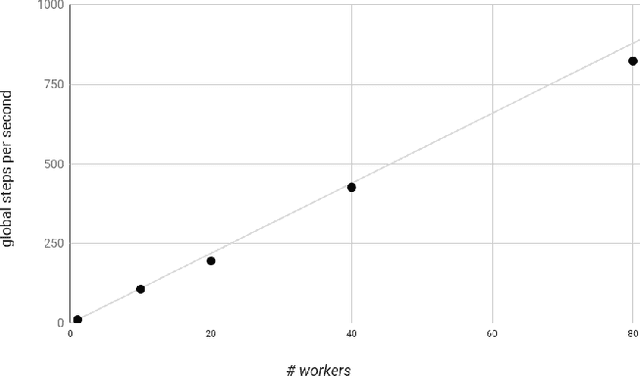
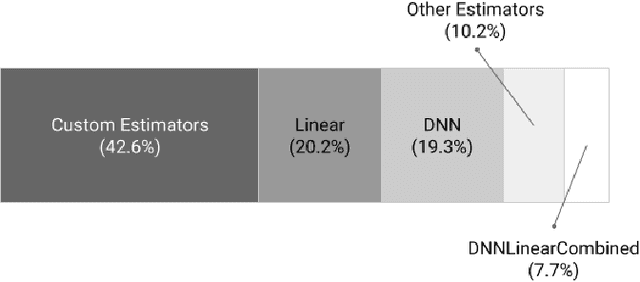
Abstract:We present a framework for specifying, training, evaluating, and deploying machine learning models. Our focus is on simplifying cutting edge machine learning for practitioners in order to bring such technologies into production. Recognizing the fast evolution of the field of deep learning, we make no attempt to capture the design space of all possible model architectures in a domain- specific language (DSL) or similar configuration language. We allow users to write code to define their models, but provide abstractions that guide develop- ers to write models in ways conducive to productionization. We also provide a unifying Estimator interface, making it possible to write downstream infrastructure (e.g. distributed training, hyperparameter tuning) independent of the model implementation. We balance the competing demands for flexibility and simplicity by offering APIs at different levels of abstraction, making common model architectures available out of the box, while providing a library of utilities designed to speed up experimentation with model architectures. To make out of the box models flexible and usable across a wide range of problems, these canned Estimators are parameterized not only over traditional hyperparameters, but also using feature columns, a declarative specification describing how to interpret input data. We discuss our experience in using this framework in re- search and production environments, and show the impact on code health, maintainability, and development speed.
 Add to Chrome
Add to Chrome Add to Firefox
Add to Firefox Add to Edge
Add to Edge